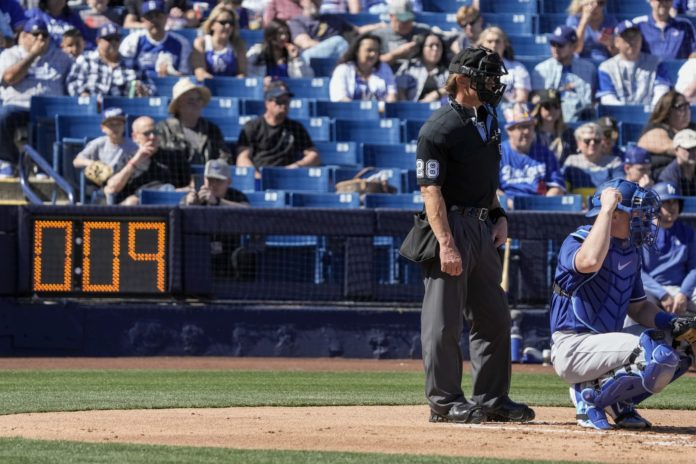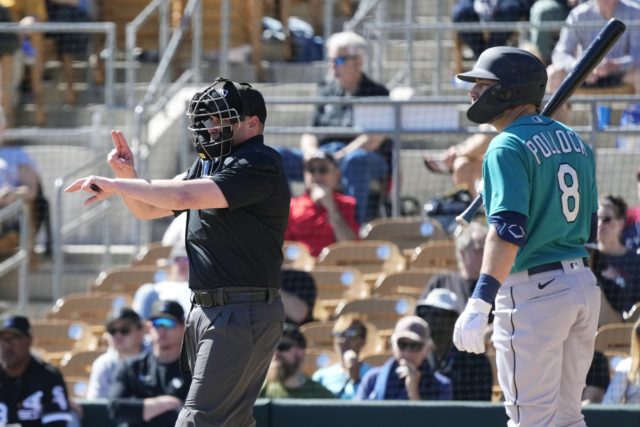
By Pierson Luscy | LTVN Reporter/Anchor
The Major League Baseball pitching clock has been introduced to the game of baseball during spring training. Although the games have been sped up, this new addition has serious potential to ruin the sport.
The MLB announced that pitchers and batters will be put on a timer in order to speed up the game starting in the 2023 season.
Pitchers are now allotted 15 seconds in between pitches rather than going at their own pace, and batters are given eight seconds to get in the batter’s box. A violation on the pitcher’s end will result in him being charged a ball, and a violation by the batter will give the batter a strike.
The goal of increasing the pace of the game is working. With most previous nine-inning baseball games taking around three hours to complete, ESPN MLB insider Jeff Passan tweeted that two of the first spring training games finished in roughly two and a half hours.
This new rule has shown it can shave off about 30 minutes of time, but it has already indicated in spring training that it will be a massive adjustment for the players.
In a 6-6 ball game between the Boston Red Sox and Atlanta Braves on Saturday, Braves second-baseman Cal Conley was penalized with a strike for not getting into the batter’s box on time on a 3-2 count. Despite the bases being loaded and Conley having a chance to end the game in walk-off fashion, the contest ended in a tie.

What the MLB needs to realize is a situation like this will happen again where a game ends on a technicality.
The sports world has already seen what happens when a game ends on a technicality. In the 2023 Super Bowl, Eagles cornerback James Bradberry was called for holding on Kansas City Chiefs wide receiver JuJu Smith-Schuster. The game would ultimately end on three Chiefs kneel downs and a field goal kick, and the call was talked about more than the actual play.
The holding that Bradberry committed fell under the guidelines of a penalty even though Smith-Schuster’s route was barely impeded, but it was the correct call under a technicality.
These circumstances have the potential to happen often because of the number of games played in baseball, and what the MLB needs to live with is that it can come at a crucial time in the season.
The rule does speed up the game and significantly impacts the overall time from the first pitch to the final out, but it’s not worth it when the game is being changed so dramatically.
The new rule might not look like enough to create a sports-wide controversy, but if more games rely so heavily on this trivial detail, then this might be a newer, worse era of baseball.





